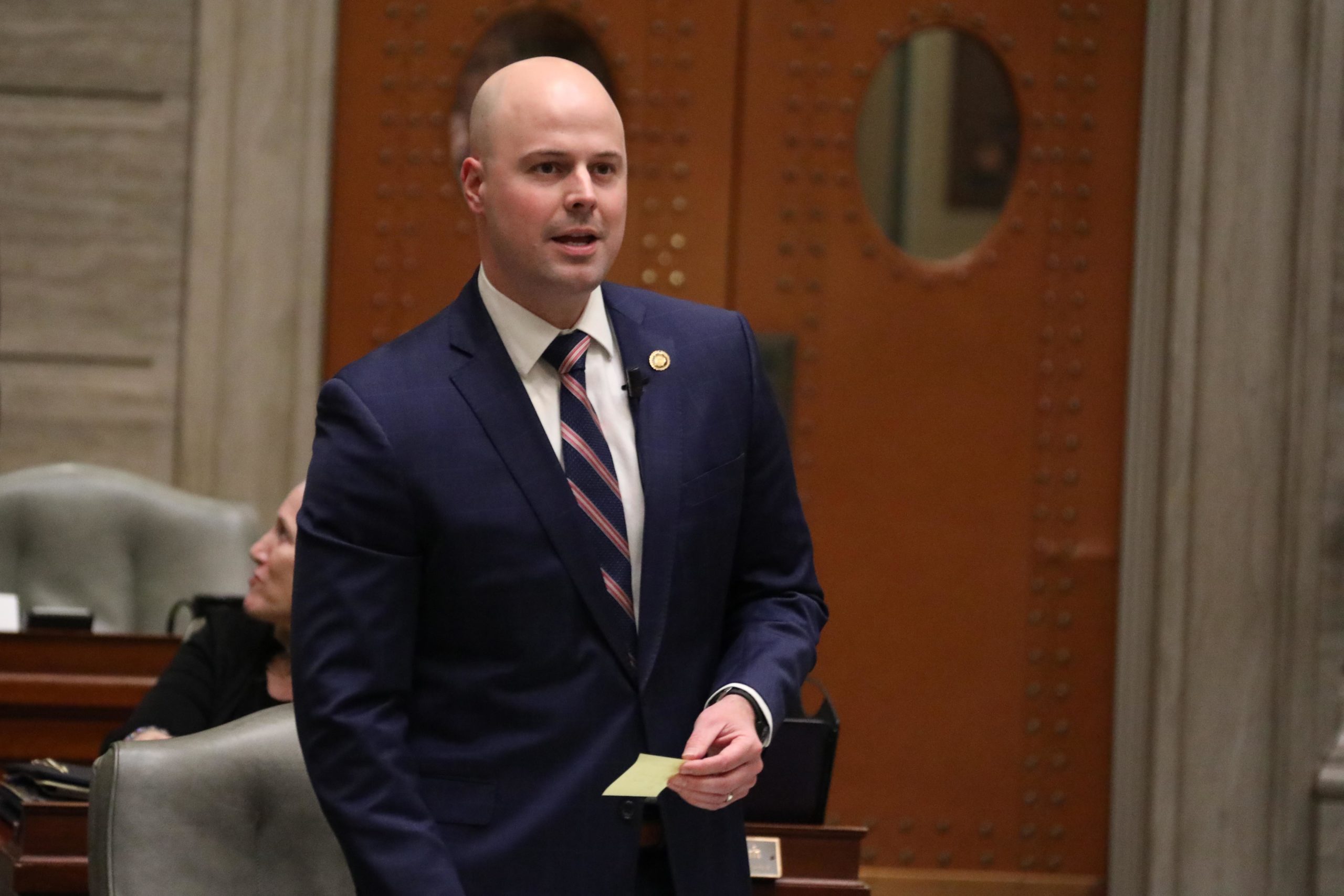JEFFERSON CITY, Mo. — After several hours of debate and compromise, the Missouri Senate perfected a bill altering residency requirements for Kansas City police officers Tuesday evening.
In its perfected form, Sen. Tony Luetkemeyer’s SB 53 would prohibit the Kansas City Board of Police Commissioners from enacting residency requirements more restrictive than 30 miles outside of the city limit and would require officers to live within the state of Missouri. Luetkemeyer said the change would mimic the St. Louis version passed last year and bolster recruitment for the area.
“The purpose was to boost officer recruitment and retention; SB 53 does the same for the Kansas City Police Department,” he said. “Whether the city wants to admit it, there’s some recruitment issues going on. We’ve seen a steady decline over the last three years in the number of applicants taking the written entrance exam; there are unfilled positions in the KCPD right now. It’s a tough time to be a law enforcement officer.”
Luetkemeyer’s substitute made a bevy of changes to law enforcement beyond the city, increasing the crime of doxxing a police officer to a Class E felony and including language from Sen. Brian Williams prohibiting the use of chokeholds by law enforcement.
Provisions added on the floor included an amendment allowing sheriffs to receive up to $50 for serving or otherwise enforcing an eviction. Another from Sen. Karla May would create the Critical Incident Stress Management Program to provide trauma and stress management services for officers.
While the original limit on the requirement was set at 60 miles from the city limit, Sen. Barbara Washington, who represents part of Kansas City, championed an amendment setting the requirement at 25 miles from the board of commissioners’ headquarters. Washington said keeping officers close to the area encouraged economic development and improved community relations.
“With community residency, we have people that are involved in the community,” she said. “We have police officers that don’t just walk the streets and learn people — they involve themselves, they learn about the culture and the character of the people they are sworn to protect.”
After two hours on the amendment, Luetkemeyer came forward with a compromise setting the boundary at 30 miles from the city limits within the state. The bill was swiftly perfected after the amendment’s adoption.
Kansas City Mayor Quinton Lucas addressed the debate on social media, saying it would create greater division in the community.
The Missouri Senate is currently debating a bill that would remove the residency requirement for Kansas City police officers.
Such a bill is a step back for community-police relations at a time our city cannot afford it. Outside occupying forces lead to more problems, not fewer
— Mayor Q (@QuintonLucasKC) March 23, 2021
“Such a bill is a step back for community-police relations at a time our city cannot afford it. Outside occupying forces lead to more problems, not fewer,” he said. “There are many things we need to do to stem the rising violent crime in our city — de-escalation, better health services, community investment, youth empowerment. Bills like this fostering greater division between the community and its police ain’t it.”
A similar bill was signed into law as part of last summer’s extraordinary session on violent crime, eliminating residency requirements for law enforcement and other public safety personnel in St. Louis.

Cameron Gerber studied journalism at Lincoln University. Prior to Lincoln, he earned an associate’s degree from State Fair Community College. Cameron is a native of Eldon, Missouri.
Contact Cameron at cameron@themissouritimes.com.




















